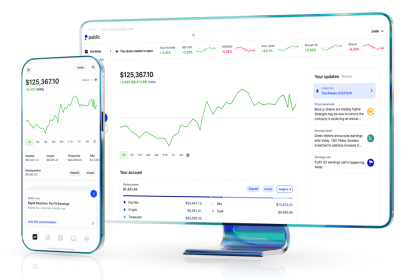Key takeaways
- Yields on competitive CDs remain stable while the Federal Reserve keeps the federal funds rate steady.
- CDs can be a safe place to invest your money at a guaranteed rate of return, which could add stability to your portfolio.
- Though CDs provide stability, it pays to consider factors such as your risk tolerance and your need for liquidity before committing to them.
The answer to whether a certificate of deposit (CD) is worth it for you right now depends on your risk tolerance, when you’ll need access to the money and at least a bit on current rates and where they’re headed.
CD yields haven’t been this high in more than a decade (though rates have dipped since their latest peak 2023) — the best CD rates as of the publication date are 4 percent or above on common CD terms. And these yields are currently outpacing inflation.
Before investing, consider the pros and cons of CDs, the current rate environment (and where it’s headed) and see if you’re in a financial situation that might make CDs worth it right now.
Summary: Pros and Cons of investing in CDs
Pros
- Guaranteed rate of return.
- Federally insured (within limits).
- Your principal is protected from loss.
- Long-term stability with a CD laddering strategy.
Cons
- Can’t access your money easily like you can in a savings account.
- Penalties for withdrawing money early.
- Yields could lag behind inflation.
- Returns are low compared to other, riskier investments like stocks.
What Federal Reserve decisions mean for CD investing right now
Yields on competitive CDs indirectly follow the federal funds rate. As such, the best CD yields decreased months before the Fed lowered rates in September 2024 (for the first time since 2020).
The Fed lowered rates two more times after that but has kept the rate steady so far in 2025, mostly due to inflation. This is why CD rates have been relatively stable — and still relatively high. For example, while the best one-year CD rates are lower than where they were in 2023, they’re still elevated.
But it’s likely there will be at least one rate cut in 2025, which could bring CD rates down, unless current CDs already have a rate cut priced in to the current yield.
The top-yielding CDs continue to outpace inflation but those yields will start to slide as the Fed’s timetable for an interest rate cut becomes more clear.
— Greg McBride, CFA, Bankrate chief financial analyst
When is investing in a CD worth it?
Among others, there are a few situations when a CD might be worth it.
- You don’t need the money for a while: CDs offer you a chance to keep your cash safe while growing at a guaranteed rate, but you commit to keeping your money locked up for a set amount of time in exchange for the guarantee. So, if you have savings you can do without for a little while, you can take advantage of the current high CD yields. Note that you could get similar rates with some of the best high-yield savings accounts right now, too, but those rates are variable and can change at any time.
- You want guaranteed returns: If you want to know exactly how much money will be in your account after a certain amount of time, a CD could be a valuable tool for you. With a fixed-rate CD, you’ll earn a guaranteed annual percentage yield (APY) throughout the CD’s entire term. For instance, if you deposit $10,000 into a one-year CD that earns 4.40 percent APY, you can use a CD calculator to see that you’ll earn around $440 in interest. If you deposit that in a savings account with a variable rate, you can calculate how much you’ll earn in interest in a year in theory, but you won’t know with any certainty.
- You want a low-risk investment: CDs are a safe, secure investment, covered under federal deposit insurance, as long as the money is with a federally insured bank or credit union. This means it’s covered up to $250,000 per depositor, per insured bank or credit union, per account ownership category (such as joint versus single). As such, you won’t lose your money if your financial institution were to fail, as long as your deposits are within the stated limits. But you also won’t earn the highest possible return on your money.
Consider building a CD ladder
If you’re seeking the benefits of longer-term fixed rates, along with access to some of your funds relatively soon, a CD ladder could be worth considering. A ladder consists of opening multiple CDs at once, with varying maturity dates. When each CD matures and its money is freed up, you can choose to open another CD or invest the money elsewhere.
When investing in a CD is not worth it
There are a few financial scenarios that aren’t a good fit for CDs.
- You don’t already have a fully-funded emergency fund: Before you put money away into a CD, you should have an emergency fund, preferably stored in a high-yield savings account so you can withdraw the money whenever you need it. A CD isn’t a good place for rainy day funds: You can’t add money to a CD after the initial deposit, and you also can’t take it out without paying a fee (usually).
- You want a higher rate of return — with higher risk: While CDs can provide guaranteed returns over time and some level of security, they’re not likely to provide you with the returns needed to build wealth for retirement over time. Currently, they’re outpacing inflation, but investing in the stock market can provide much higher returns. (But of course, unlike with CDs, you can lose money on market-related investments.) If you’re looking to build retirement funds and build wealth, you should look into other assets and only use CDs for a portion of your portfolio.
- You want access to your savings soon: If you think you might need to dip into your savings during a CD’s term, don’t open one (unless it’s a no-penalty CD). The early withdrawal penalty will likely erode any gains you’ve made. “Be aware of what it will cost you in case you need to unlock your money prematurely,” says Mark Moroz, chief banking officer at Live Oak Bank.
Do the penalty math before you open a CD
An early withdrawal penalty is one of the only ways to lose money in a CD.
For example, let’s say a bank has a penalty of 540 days of simple interest for breaking a five-year CD before it matures. This means that if you withdraw at 540 days, you’ll lose all the interest you’d earned. If you withdraw before 540 days, you’ll lose all your interest, plus the rest of the penalty could be taken out of your principal deposit.
Alternatives to standard CDs in 2025
While some CD rates are currently outpacing the rate of inflation, you might decide it’s best not to lock up your funds. Or, you might choose to diversify your funds among CDs and other types of investments. These options include:
- No-penalty CDs: Unlike traditional CDs, these allow you to access your funds prior to the maturity date, without charging an early withdrawal penalty. Note that no-penalty CD rates tend to be lower than traditional CDs with similar term lengths.
- High-yield savings accounts: A high-yield savings account earns a competitive APY — and it provides penalty-free access to your funds, unlike CDs that charge penalties for early withdrawals. As such, these liquid accounts are a better place than CDs for your emergency fund. Unlike CDs, savings accounts earn variable APYs, so their rates are subject to change at any time.
- Treasury Inflation-Protected Securities (TIPS): These U.S. government bonds provide some protection against inflation while being fairly safe. The effective interest rate paid on TIPS moves up or down, along with inflation.
- Fixed annuities: If you already have a large chunk of capital and are looking for something stable, a fixed annuity might provide better returns than a CD. These contracts, typically made with an insurance company, guarantee a certain amount of income for a set period.
- Mutual funds: Mutual funds consist of money pooled by investors that’s invested in securities such as stocks or bonds. There are thousands of mutual funds to choose from, so you can diversify your portfolio by investing in a variety of ways. Mutual funds may earn higher yields than CDs, although these rates of return are subject to fluctuation.
No matter where you choose to invest your money, a good investment strategy involves considering your risk tolerance and finding ways to properly diversify your investments. A financial advisor is often a valuable resource.
Bottom line
As part of a portfolio that includes cash, CDs can provide stability and security. However, CDs are unlikely to provide you with the returns you need to build wealth for the future or live off the interest — unless you already have a large amount of money and ladder your CDs to avoid penalties.
Additionally, CDs lack the liquidity you’d need for something like an emergency fund. To recession-proof your finances, it’s important to establish an emergency fund in a savings account before focusing on other investments.
Why we ask for feedback
Your feedback helps us improve our content and services. It takes less than a minute to
complete.
Your responses are anonymous and will only be used for improving our website.
Help us improve our content
Read the full article here
















